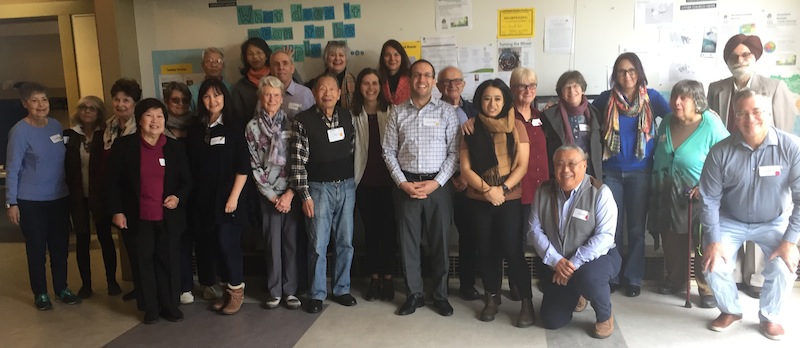On Jan. 22, Jewish Seniors Alliance, as part of its Empowerment Series, presented a lecture by Dr. Honoré France. An educator, artist, writer, therapist and consultant in the field of mental health, France explored the early history of seniors peer support, which is based on the concept of seniors helping seniors.
Grace Hann, trainer and supervisor of Senior Peer Support Services at JSA, co-hosted the Zoom event with Andrea Krombein of South Vancouver Seniors Network, which co-sponsored it. About 60 seniors participated. Gyda Chud, past president of JSA, welcomed everyone.
In her introduction of France, Hann said she uses his writings in the JSA’s peer-support training program. She noted that France has presented his ideas on training in many countries and has been involved with peer support since the late 1970s, when he moved to Victoria. He was influenced by the works of Viktor Frankl, as well as work done in a hospital in Paris, where a doctor and a former patient began a program to help patients by using recovered patients as volunteers. Much research has been done in this area, she said, and it has been shown that paraprofessionals can be as effective as therapists.
France has written a book on peer counseling and peer support. As well, he said, Frankl’s book Man’s Search for Meaning and Erik Erikson’s eight stages of life (of psychosocial development) are still being used by therapists. Communication and listening skills are of prime importance in peer counseling, he said, and Hann pointed out that silence, as well as mirroring back what the client has said, are useful in opening communication and forming a bond between the volunteer counselor and the senior. Two volunteers, Marie and David Kirkpatrick, said they had learned from the training provided by Hann and Charles Leibovitch, senior peer support services coordinator with JSA, and through contact with clients.
France also discussed some of the myths about aging. For example, we are just as mentally fit at age 80 as at age 20, he said, but our reaction times are slower. To keep healthy, we need to exercise both the body and the mind, he said.
Chud thanked France for his comments and his work, noting how effective it has been in JSA’s peer support training program. Comments and questions included Margot Beauchamp on the connection between isolation, loneliness and general health, and Larry Shapiro said volunteering should be first on any list of things seniors should be doing.
A new training session for peer support will begin on March 1 and those interested should contact the JSA office. The next Empowerment program will take place in March, with the Jewish Museum and Archives of British Columbia. More details will soon be available at jsalliance.org.
Shanie Levin is a Jewish Seniors Alliance Life Governor. She is also on the editorial committee of Senior Line magazine.


